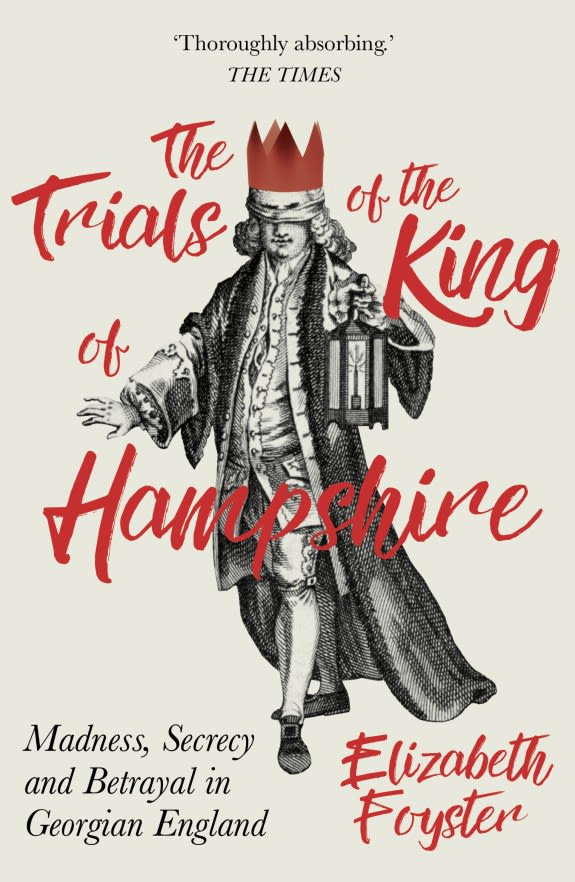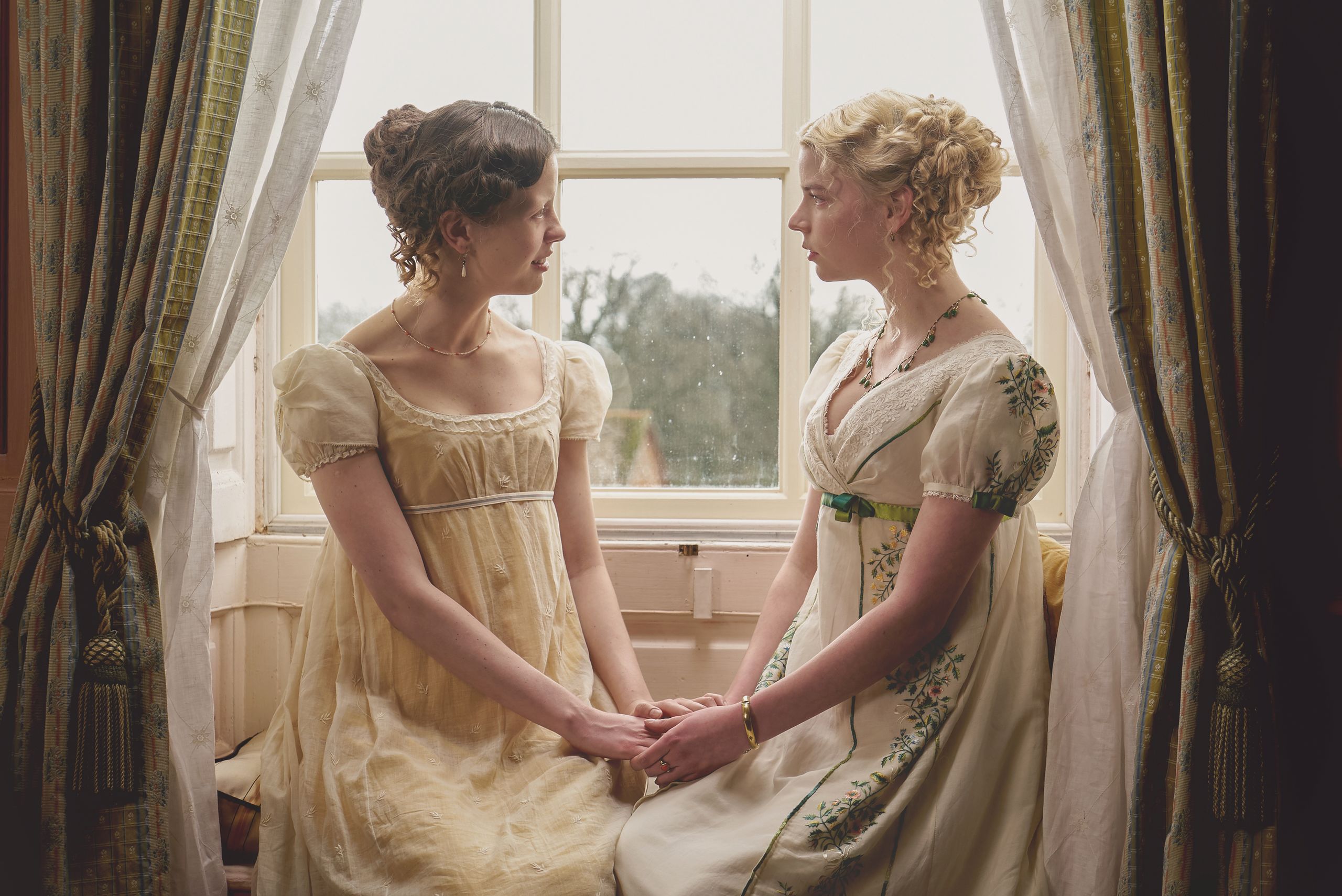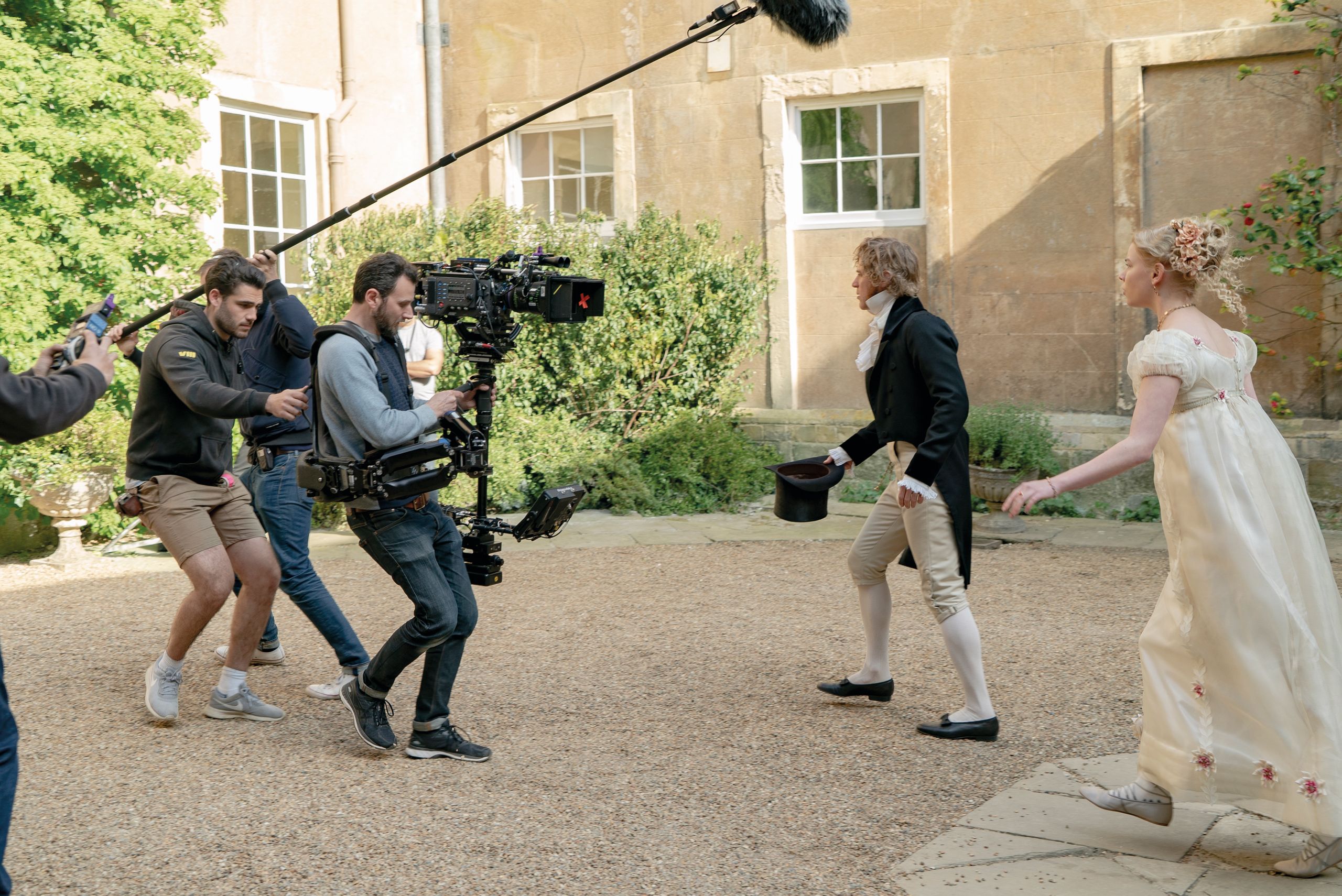Working on Emma.
Another History Fellow at Clare has a brush with Hollywood...

When fellow History Fellow at Clare, John Guy, asked me if I’d be interested in being the historical advisor for a new adaptation of Jane Austen’s Emma, I jumped at the opportunity. At school, I’d always thought that being a historical researcher for a TV or film company would be a dream job. History was about the only subject I was good at, and I thought that being set the task of researching a variety of historical topics would be great fun. University set me on a more conventional career path towards academia, with its combined roles of teaching as well as research. Yet my curiosity about this other kind of historical role had remained.
John Guy initially became involved with Working Title, the production company behind Emma, after they produced a film in 2019 based on his research into Mary, Queen of Scots. For Emma they were looking for a historian who had knowledge of Regency England. Research for my most recent book, The Trials of the King of Hampshire: Madness, Secrecy and Betrayal in Georgian England (Oneworld, 2016), which told the life story of the third earl of Portsmouth (1767-1853), including his sensational trial for lunacy, had given me just that. In particular, I had read about Jane Austen’s childhood and upbringing, since as a young boy Lord Portsmouth had been sent to be tutored by Austen’s father and lived in the rectory at Steventon. Yet, along with the scriptwriter for Emma, the Man Booker Prize winner, Eleanor Catton, I had never actually read the novel before being offered the job, so I had a lot of catch-up reading to do.

The Trials of the King of Hampshire: Madness, Secrecy and Betrayal in Georgian England (Oneworld, 2016)
The Trials of the King of Hampshire: Madness, Secrecy and Betrayal in Georgian England (Oneworld, 2016)
I had two meetings at the Working Title offices in London, where I first met the director, Autumn de Wilde. A photographer and director of music videos, this was the first movie which Autumn had directed. Autumn is a character in her own right: she has enormous energy and creativity, an interest in colour, light and sound, and an eye for the tiny details. Wearing her trademark trilby hat, indoors and out, she has an ability to get everyone motivated and working hard. She succeeded at securing a talented cast, including Bill Nighy as Emma’s father, Mr Woodhouse. She persuaded Nighy to accept the role by presenting him with a ribbon-tied wooden box, inside which were a series of Regency-style prints. One of these was a representation of him playing Woodhouse: with this she had him hooked.
Amber Anderson, Tanya Reynolds, Josh O’Connor, director Autumn de Wilde and Johnny Flynn on the set of Emma.
Bill Nighy as Mr Woodhouse, Miranda Hart as Miss Bates, and Myra McFadyen as Mrs Bates
During the face-to-face meetings I was asked many questions that I’d anticipated, for example, about the role of servants, the experience of going to a ball in an assembly room, the ways in which women of Emma’s social status would have spent their time. These meetings were hugely enjoyable because we talked about how to recreate the humour and social comment that is at the heart of Austen’s novel. We chatted about the potential of tea parties to expose the social differences between Emma and her friend Harriet Smith, and the discomfort of long-distance coach travel, which meant that Emma’s sister, brother-in-law and many children might arrive from their journey as frazzled as we might after a long car trip.

Mia Goth as Harriet Smith, with Anya Taylor-Joy as Emma Woodhouse.
Mia Goth as Harriet Smith, with Anya Taylor-Joy as Emma Woodhouse.
I answered hundreds of queries, most of which were concentrated in a three month period, and were sent by email and text. This was a humbling experience: I realised that although I had worked as a social historian for many years, there were a great number of details about everyday life that I’d missed, and needed to research. I investigated weddings and wedding dresses; wallpaper colours; seasonal decorations and party games; make-up, hats and hair styles. Some questions were more bizarre than others: did they have clothes brushes? (yes); what swear words were used? (“Good God” is about the most extreme); were there wind chimes? (yes, they were being imported from the Far East, but they were probably not fashionable in rural settings such as Highbury: why not have the sound of a striking clock?). The Clare students who I was supervising at the time found that they never knew what questions I was going to ask them if an Emma email had arrived in my inbox that day.
It was while I was on a term’s research leave, when I’d usually be in an archive or library, that I was invited to spend a day on set.

One hot May day, I visited Ramster Hall, Surrey, which was the location for the ball scene. Ramster Hall was just right for this scene: it contains a small, timbered ceiling room which was used to represent Highbury’s tavern where the first ball for years is held. The hall’s windows were blacked out for the evening ball, and an adjacent side room was crammed with cameras and sound equipment. The on-set logistics were impressive: cast and crew were transported to the set from the early hours and many were accommodated locally overnight; temporary dressing rooms had been erected in the outside courtyard; huge lorries had transported furniture, props and equipment; there was a catering team serving a choice of hot meals throughout the day. I estimate that there were about four times as many crew as cast: they included a man with responsibility for ensuring that the candles appeared to be lit at roughly the same height in every shot, necessitating a huge box of candles, given that in reality filming took place over three days. With all those lit candles, and a room crammed with people, a fire crew was on stand-by outside throughout filming.
It was a thrill to see the actors in action, and I now hold them in even greater esteem, since I realise how much time can be spent filming just one shot. I was on set for nine hours, during which time Miranda Hart, who plays Miss Bates, repeated the opening lines of the ball scene (“Well! This is brilliant indeed! This is admirable! Excellently contrived, upon my word, nothing wanting!”), again and again. Sound and lighting had to be corrected, and this was a complicated scene because it involved so many people who had to be positioned correctly. Yet over the whole day, I think less than a minute of the film was shot. Miranda Hart was as professional (and good humoured) at the end of the day as at the start.
It was a nervous wait from May until late January, when there was a special pre-release screening to which I was invited, to see how the film had turned out. Having given my views, I realised that it was up to the director to decide what she chose to follow, and what to ignore. While I’d fulfilled a childhood ambition to work on a film, I’d become accustomed to being in control of my research and what gets published: now someone else was in charge. What’s more, being a historical advisor for a film based on a novel is always a tricky role to play. The film is twice removed from historical reality: Jane Austen was writing fiction, and Autumn de Wilde was presenting her version of that story.
Josh O'Connor as Mr Elton, and Tanya Reynolds as Mrs Elton
It is a sugar-sweet film (one reviewer has called it a ‘cupcake’ of a movie), in which anything remotely unpleasant about the time period is absent, even if Austen included it. So there is no visit by Emma to a poor person’s cottage, and the late night ‘gypsy’ attack on Harriet Smith is skipped over in favour of her gallant rescue by Mr Churchill. Yet this is a ‘feel-good’ movie, featuring a fine cast, which is beautifully shot. At the very least, I can vouch for it being historically authentic. For readers with an eager eye, or ear, there is another Clare connection: former Director of Music John Rutter’s arrangement of ‘Oh Waly, Waly’, is sung at the end of the Christmas scene, providing a fitting, melancholic soundtrack to Mr Elton’s failed attempts to seduce Emma. Clare Fellows’ Hollywood connections seem set to continue.
EMMA. is available to view on demand now.

